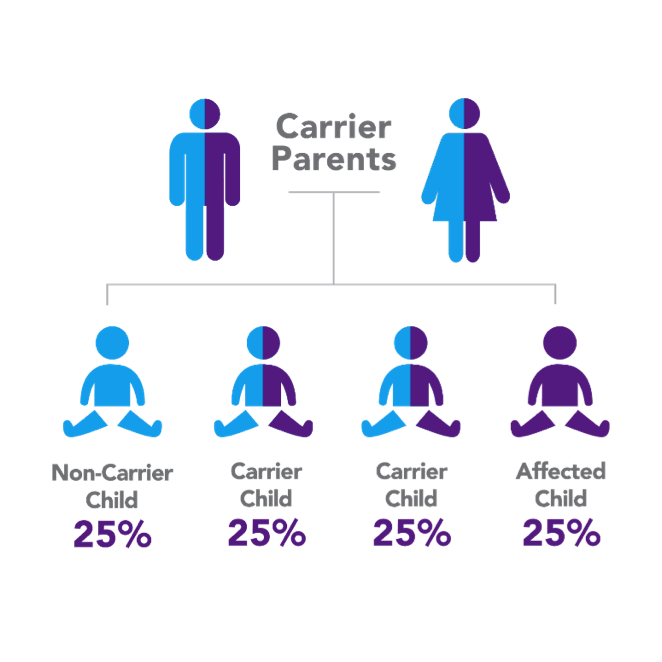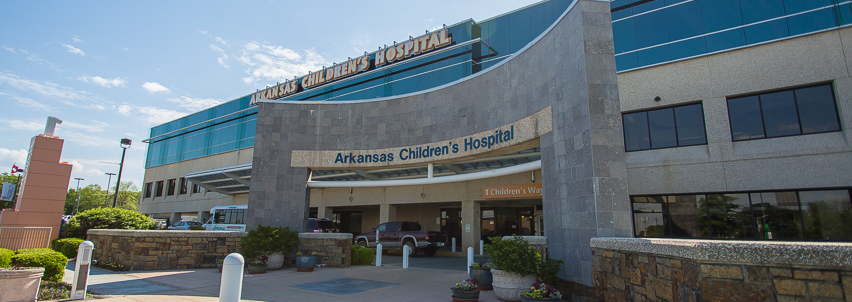CFTR- Related Metabolic Syndrome (CRMS): Information for caregivers
We know parents worry and have many questions when they find out their child is diagnosed with CFTR-related metabolic syndrome (CRMS). A diagnosis of CRMS does not mean your child has cystic fibrosis (CF). But, you will need to learn about CF to better understand what it means for your child to have CRMS.
What is Cystic Fibrosis?
Cystic fibrosis (CF) is a permanent condition. People with CF look like everyone else, but have health problems. Cystic fibrosis does not affect the brain or how smart a person is. Children with CF go to school, play sports, and get their driver’s license. Adults go to college, have successful jobs, live on their own and get married. CF does not affect every person the same way so it’s hard to say how mild or severe the condition may be.
CF is caused by genes that do not work properly. These genes are inherited from each parent. When healthy, the CF gene makes a protein called CFTR. This protein is found in the cells of many organs, like the lungs and the pancreas. CFTR stands for “cystic fibrosis transmembrane regulator”. This protein helps the flow of chloride and sodium (salt and water) in and out of cells. When the CF gene is changed (called a mutation), the CFTR protein in the cells does not work properly. This causes the salt balance in the body to be unequal and leads to very thick mucus. This mucus then blocks the passages in certain parts of the body.
- Lungs/Sinuses: The CF lung is dry and the thick mucus can’t easily be moved or coughed out. Eventually, the thick mucus builds up and clogs the airways. This can lead to infections and inflammation (swelling) in the lungs. Thick mucus in the sinuses can also cause infections.
- Digestion/Growth: Thick mucus blocks the digestive tract and pancreas. This stops digestive enzymes from getting into the intestines. Enzymes are needed to break down food, which provides nutrients to help people grow and stay healthy.
- Liver, bone health, and reproductive systems: Liver disease, CF-related diabetes, bone mineral issues, and low vitamin levels can also occur. Most men with CF are unable to naturally conceive a child. However, methods now exist to help this problem. Women with CF may become pregnant, but have special health concerns. They should talk to their doctor if thinking about having a baby.
See Figure 1 showing a normal CFTR protein versus non-working CFTR protein
|

Who gets CF?
Around 30,000 people in the United States have CF. It is most common in Caucasians, but it can affect all races. The CF symptoms are different from person to person. Research shows that the severity of CF symptoms is partly based on the types of CF gene mutations. Some mutations are known to cause more severe problems than others. Scientists have found more than 1,900 different mutations of the CF gene.
What is CRMS?
A diagnosis of CRMS is made when a baby has a borderline newborn screening test result for CF. This does not mean your child has CF, but that they could be at risk for having problems in the parts of the body affected by CF. A CRMS diagnosis may be given if your child has
- 2 negative or borderline sweat test results that are higher than in normal children, but not high enough to cause CF and
- One or 2 CF gene mutations, one of which does not normally cause CF symptoms. However, it could mean your child is at higher risk to have problems in the lungs, sinuses, intestines/pancreas, or reproductive systems.
Due to the risk of developing CF related problems, people with CRMS should be followed by a CF specialist at a CF Foundation accredited care center. Some people may even be diagnosed with CF later in life. A sweat test will be repeated around 6 months of age. If results remain borderline and no symptoms are present, children will be followed at least once a year by the CF specialist. They will continue normal visits with their primary care physician.
How do people get CRMS?
The root cause of CRMS is genetic. This means people inherit CRMS from their parents through genes (or DNA). Genes are found in the cells of the body. They give instructions to make proteins. Proteins define how the body looks, grows, and develops.
In CF, cells in parts of the body aren’t working normally due to a change in the CF gene, called mutation. The CF gene mutation gives wrong instructions to the protein (called CFTR) about how to work. This protein controls the movement of chloride and sodium (elements of salt) in and out of these cells. When the protein doesn’t work properly, as in cystic fibrosis, the salt and water balance in the body is disturbed.
Some changes in the CF gene can cause severe symptoms and disease. However, some CF gene mutations partly work or work well enough that either symptoms do not occur at all or are very mild. These milder mutations normally do not cause classic CF.
It is possible for a person with CRMS to have a disease causing mutation on one copy of the CF gene, but a mild mutation on the other. The symptoms of that person would depend on the interaction of those two mutations and other environmental factors. The diagnosis of CRMS may be made because the child will need to be monitored. While we cannot predict the range of symptoms for many children with CRMS, certain mutation combinations may guide our expectations.
To have CRMS, a person usually inherits two copies of the non-working CF gene - one copy from each parent. But, it is possible that a second mutation may not be detected by testing. Both parents of a child with CRMS are usually CF carriers. Being a CF carrier means that someone carries one CF gene mutation, but the other copy of the gene is healthy. A CF carrier will not have CF and normally has no signs or symptoms of disease. Since having only one CF gene mutation does not typically cause symptoms, this copy can be passed down to family members without one having the disease. Unless they have a child with CRMS, most people who are carriers do not know it.
Each time two carriers of a CF gene change have a child, the chances are:
- 25% (1 in 4) the child will have CRMS;
- 50% (1 in 2) the child will carry the CF gene but not have CRMS; or
- 25% (1 in 4) the child will not carry the gene and not have CRMS
See the Figure 2 below for an example of two carrier parents and how that may affect their children
|

In a family with four children, it is possible for none or all of them to have CRMS. Each child has the same chance to inherit CF gene mutations from both parents, no matter if any of the other siblings are carriers or have CRMS.
About one in 29 Caucasians are CF carriers. In other races, one in 46 Hispanic Americans, one in 65 African Americans and one in 90 Asian Americans are CF carriers.
What are the symptoms of CRMS?
Infants with CRMS typically do not have symptoms when they are diagnosed. We cannot clearly know the future health of a person with CRMS, but they are likely to remain healthy. Some people with CRMS will develop problems in the airways or sinuses; the intestines and pancreas; or the reproductive system. But many people with CRMS do not have any problems. The range of symptoms could be all to none. This is why regular checkups with a CF specialist are needed; so they can find and treat any early changes if they happen.
Because most people with CRMS are healthy, they may not see their doctors very often. However, you or your primary doctor should contact with the CF Care Center if any of these symptoms occur:
- Poor growth or no weight gain
- Frequent loose or greasy stools
- Very bad gas or constipation that last more than 2 weeks
- Very bad stomach aches
- Coughing or wheezing that last more than 2 weeks
- Frequent lung infections
Who can be tested for CRMS?
Arkansas screens all newborns for CF. This is important because catching the condition early leads to prompt treatment and better health in the long run. Some infants with CRMS can be discovered during newborn screening tests, but not all since this test only includes part of the known CF mutations.
Once parents have had a child diagnosed with CRMS, all of their children can be tested, whether they have symptoms or not. Other relatives also have a chance of being carriers of a CF mutation. They may wish to get a genetic carrier test for CF or a sweat test if they are having symptoms of CF.
To learn more about genetic testing, contact your doctor, obstetrician or genetic counselor.
Staying Healthy:
There is no cure for CRMS. People with CRMS are most likely to stay healthy. Routine treatment is not needed unless symptoms occur. If your child has CRMS, the best thing to do is keep regular checkups with a CF specialist. This way any health changes or problems can be found early and treated quickly. Primary doctors can also watch for the onset of CF-related symptoms in your child. Other tips to stay healthy include:
- Avoid smoke exposure
- Receive regular immunizations
- Receive yearly flu vaccine (for both caregivers and person with CRMS)
- Inform your doctor of any new symptoms
- Wash hands regularly (after coughing/sneezing, enter and leaving the clinic, and after using the restroom)
- Keep at least 6 feet from other people with CF or others who have colds or infections
- Your child should wear a mask in the hospital or clinic
You may notice your CF specialist will wear gown and gloves in the exam room in clinic. This is advised by the CF Foundation in offices where there are people with CF or CRMS in order to protect your child against passing germs between patients.
Resources:
- Cystic Fibrosis Foundation: www.cff.org
- Arkansas Cystic Fibrosis Care Center: www.arkansasCF.com
- Genetics Home Reference summary of cystic fibrosis: http://ghr.nlm.nih.gov/condition/cystic-fibrosis
- Clinical and Functional Translation of CFTR: http://www.cftr2.org/
